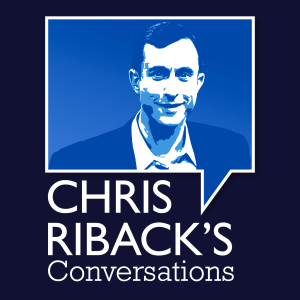
Here’s a parlor game: Outside of President Trump, who’s the most curious figure on the world stage today? China’s Xi? North Korea’s Kim? MBS of Saudi Arabia?
As Trump’s interactions with global leaders raise never-ending questions, few are as perplexing – or, if we only could understand it, might explain so much – as the one with Vladimir Putin.
When the Cold War ended, it all seemed so clear: History was over, and liberal democracy would deliver a new Russia. But as the so-called liberal modernizers and democratic reforms emerged, so too did a period of extreme poverty and oligarchic wealth – a debilitating era of Russian economic and social challenges, even humiliation. As that time ran its course, an apparent savior emerged – a single man who refused to consider Russian weakness and instead redefined Russian power and pride. A man who recently told the Financial Times: “The liberal idea has become obsolete.”
So what happened? How is today’s polarized, disrupted world one in which Russia can thrive?
As Trump’s interactions with global leaders raise never-ending questions, few are as perplexing – or, if we only could understand it, might explain so much – as the one with Vladimir Putin.
When the Cold War ended, it all seemed so clear: History was over, and liberal democracy would deliver a new Russia. But as the so-called liberal modernizers and democratic reforms emerged, so too did a period of extreme poverty and oligarchic wealth – a debilitating era of Russian economic and social challenges, even humiliation. As that time ran its course, an apparent savior emerged – a single man who refused to consider Russian weakness and instead redefined Russian power and pride. A man who recently told the Financial Times: “The liberal idea has become obsolete.”
So what happened? How is today’s polarized, disrupted world one in which Russia can thrive?
That’s what Angela Stent explains through history and analysis in her remarkable new book, Putin's World: Russia Against the West and with the Rest.
Professor Stent is director of the Center for Eurasian, Russian and East European Studies and a professor of government and foreign service at Georgetown University. She has served as national intelligence officer for Russia and Eurasia at the National Intelligence Council, as well as in the Office of Policy Planning at the U.S. State Department. She has written numerous publications, including “The Limits of Partnership: US-Russian Relations in the Twenty-First Century, which earned her the American Academy of Diplomacy’s Douglas Dillon prize for the best book on the practice of American Diplomacy. She’s also a non-resident Senior Fellow at the Brookings Institution.
Professor Stent is director of the Center for Eurasian, Russian and East European Studies and a professor of government and foreign service at Georgetown University. She has served as national intelligence officer for Russia and Eurasia at the National Intelligence Council, as well as in the Office of Policy Planning at the U.S. State Department. She has written numerous publications, including “The Limits of Partnership: US-Russian Relations in the Twenty-First Century, which earned her the American Academy of Diplomacy’s Douglas Dillon prize for the best book on the practice of American Diplomacy. She’s also a non-resident Senior Fellow at the Brookings Institution.
For show notes & my newsletter, go to chrisriback.com
More Episodes
John Della Volpe, Harvard Institute of Politics
 2014-05-21
2014-05-21
 305
305
 2014-05-21
2014-05-21
 305
305
Susan Demas, Inside Michigan Politics
 2014-05-17
2014-05-17
 315
315
 2014-05-17
2014-05-17
 315
315
Wayne Slater, Dallas Morning News
 2014-05-13
2014-05-13
 308
308
 2014-05-13
2014-05-13
 308
308
Kay Henderson, Radio Iowa
 2014-05-09
2014-05-09
 313
313
 2014-05-09
2014-05-09
 313
313
Adam Smith, Tampa Bay Times
 2014-05-06
2014-05-06
 304
304
 2014-05-06
2014-05-06
 304
304
Elizabeth Wilner, Kantar Media Ad Intelligence
 2014-05-02
2014-05-02
 362
362
 2014-05-02
2014-05-02
 362
362
John Maginnis, LAPolitics.com
 2014-04-29
2014-04-29
 293
293
 2014-04-29
2014-04-29
 293
293
Geoff Garin, Democratic pollster at Hart Research
 2014-04-25
2014-04-25
 288
288
 2014-04-25
2014-04-25
 288
288
Rob Christensen, Raleigh News and Observer
 2014-04-23
2014-04-23
 275
275
 2014-04-23
2014-04-23
 275
275
Skip Rutherford, Clinton School of Public Service
 2014-04-16
2014-04-16
 281
281
 2014-04-16
2014-04-16
 281
281
Anna Greenberg, Democratic pollster of the year 2013
 2014-04-14
2014-04-14
 274
274
 2014-04-14
2014-04-14
 274
274
Lynn Bartels, Denver Post
 2014-04-11
2014-04-11
 282
282
 2014-04-11
2014-04-11
 282
282
James Pindell, WMUR
 2014-04-09
2014-04-09
 315
315
 2014-04-09
2014-04-09
 315
315
Nicholas Burns, Harvard Kennedy School
 2014-04-03
2014-04-03
 285
285
 2014-04-03
2014-04-03
 285
285
Sam Youngman, Lexington Herald Leader
 2014-04-01
2014-04-01
 256
256
 2014-04-01
2014-04-01
 256
256
Jim Galloway, Atlanta Journal Constitution
 2014-03-28
2014-03-28
 254
254
 2014-03-28
2014-03-28
 254
254
Robert Costa, Washington Post reporter
 2014-03-25
2014-03-25
 311
311
 2014-03-25
2014-03-25
 311
311
Nicco Mele, Echo Ditto and Harvard Kennedy School
 2014-03-21
2014-03-21
 263
263
 2014-03-21
2014-03-21
 263
263
Robert Shrum, Democratic strategist and NYU Wagner School
 2014-03-18
2014-03-18
 270
270
 2014-03-18
2014-03-18
 270
270
Neil Newhouse, Public Opinion Strategies
 2014-03-14
2014-03-14
 254
254
 2014-03-14
2014-03-14
 254
254
012345678910111213141516171819
Create your
podcast in
minutes
- Full-featured podcast site
- Unlimited storage and bandwidth
- Comprehensive podcast stats
- Distribute to Apple Podcasts, Spotify, and more
- Make money with your podcast
It is Free
- Privacy Policy
- Cookie Policy
- Terms of Use
- Consent Preferences
- Copyright © 2015-2024 Podbean.com






